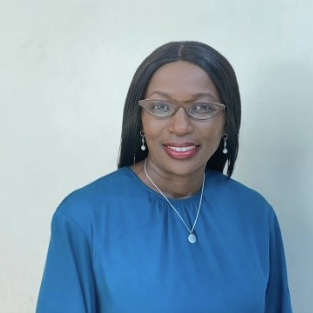
News
News and Updates from FP2030
July 11, 2022
FP2030 Newsletters
Previous

World Population Day: AHB...
Next

Getting to what works in ...
Source:FP2030
Topics:
Advocacy & Awareness
Building 2030
Dear Colleagues,
Advocacy and accountability are two pillars of the FP2030 agenda. Advocacy is the work of ensuring a promise is made in the face of competing priorities, funding gaps, and other challenges: Maybe a budget line is established or a policy is proposed. Accountability is the work of ensuring the promise was kept: the funds were dispersed, the commodities were shipped, or the program was launched. Although this work is critical in advancing the family planning agenda, advocacy and accountability remain underfunded, and the small funds dedicated to advocacy are often focused on short-term gains and fail to reflect country priorities. This must change. Funding structures for advocacy efforts need to shift to country-led approaches, and advocacy efforts must be strategic and intentional.
That’s why we're thrilled to share the new Advocacy and Accountability Framework. Developed through an extensive consultation process, the framework highlights needed changes in the movement and lays out a partnership-wide support structure that will enable locally driven strategies to succeed. This document is a conceptual guide informed by lessons learned from FP2020, as well as funding shifts, increasing opposition, and FP2030’s new regional structure. We hope countries are able to use this framework to develop their own strategies and advocacy plans based on their own contexts and priorities.
We’re delighted to continue to work together to make advocacy and accountability a priority in the FP2030 movement. In this month’s newsletter, in addition to the Advocacy and Accountability Framework, you’ll hear from several partners who helped create the framework about how to use it and why this work matters: Medha Sharma, from Visible Impact, Nepal, and FP2030 Youth Focal Point; Beth Fredrick, from Advance Family Planning; and Angeline Ngina Mutunga, from Global Health Visions. As we mark the occassion of World Population Day today, we're also sharing a piece from Em Chadband about building family planning programs that meet the needs of LGBTI people, and how this benefits other populations, too. As you build your advocacy and accountability strategies using the new framework, we hope you’ll keep the needs of the most marginalized among us in mind.
We want to thank the many contributors, consultants, and advocates who contributed to this process and to those who have paved the way for this framework to thrive.
Warmly,
Mande Limbu, Director, Advocacy & Partnerships
Sofia Heffernan, Associate, Advocacy & Partnerships
New Resource: FP2030 Advocacy And Accountability Framework
FP2030 has just released a new Advocacy and Accountability Framework: a document meant to help civil society partners, youth partners, and other stakeholders form their own advocacy and accountability strategies as part of their FP2030 commitments. Below, hear from key consultative partners and authors about how they hope advocates can use the Framework to build their own advocacy strategies.
 |
"Even as commitments and resources waver, advocates are ready, willing, and able to overcome these challenges. But underfunded efforts do not result in sustained change."
|
|
 |
"As the [FP2030] partnership was reformed for the next decade, it’s clear we needed a better framework to include advocacy and accountability in the agenda."
|
|
 |
"This Framework is a hands-on document that practically guides CSOs and YLOs like ours, that might have limited technical skills, to strengthen ownership and accountability toward FP2030 commitments." |
Prioritizing LGBTI peoples’ family planning needs benefits us all
FP2030 is based on the principle that all people, no matter how they identify, should have access to a full suite of reproductive healthcare. But too often, the LGBTI community is overlooked in the context of family planning, sometimes maliciously, and sometimes because their needs are misunderstood or ignored, but they are a key population that is at heightened risk of pregnancy, HIV acquisition, gender-based violence, and more. Learn more about ways to make family planning more inclusive for LGBTI people at www.fp2030.org/pride.
Building FP2030
FP2030 is currently hiring for the following positions, and you can learn more about all positions on the FP2030 website:
- FP2030 Adolescent and Youth Consultant
- Consultant, FP2030 Website Development
- Senior Advisor, Adolescents and Youth (North, West & Central Africa Regional Hub)
In Other News
Strong Enough Girls’ Empowerment Initiative recently launched the Indi-Genius podcast project. Indi-Genius will leverage creative oral storytelling to document and share real life experiences of grassroots family planning and reproductive health leaders, while facilitating knowledge exchange and highlighting what works and what doesn’t in reproductive health programming. Read more.
At first, the pandemic was hard on everyone. But while the world saw promise in the extraordinary development and approval of effective vaccines, the pandemic also created and extended existing inequities. From the impact on women to the lack of vaccine access for people living in low and middle-income countries, BMGF partners FP2030's Catherine Nyambura and Dr. Githinji Gitahi from Amref Health Africa share feedback with Melinda French Gates, Anita Zaidi, and Keith Klugman in the second episode of The Working Dinner video series.
Given the investment made in helping women and couples to begin using contraception, high levels of contraceptive discontinuation warrant closer examination. To help advance thinking about how to address the causes of contraceptive discontinuation, this blog series will reflect on emerging approaches and creative thinking about how family planning programs can better help women and men remain as satisfied users of contraception.
New High Impact Practices in Family Planning (HIPs):
- HIP Strategic Planning Guide - Contraceptive Method Introduction to Expand Choice.
- HIP Strategic Planning Guide - Meaningful Adolescent and Youth Engagement and Partnership in Sexual and Reproductive Health Programming.
- HIP Brief - Enabling Environment Overview.
- HIP Brief- Promoting Healthy Couples' Communication to Improve Reproductive Health Outcomes
- Updated HIP Brief - Social Marketing - Using marketing principles and techniques to improve contraceptive access, choice, and use.
To learn more about the HIPs, see the website and subscribe to the newsletter.








